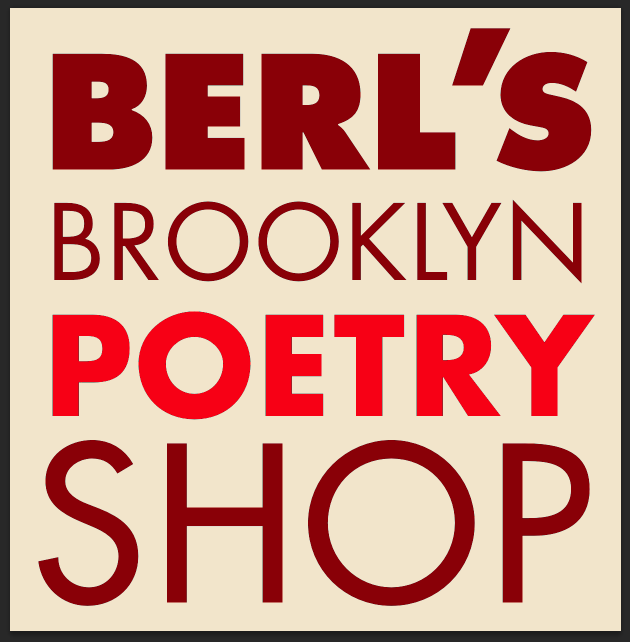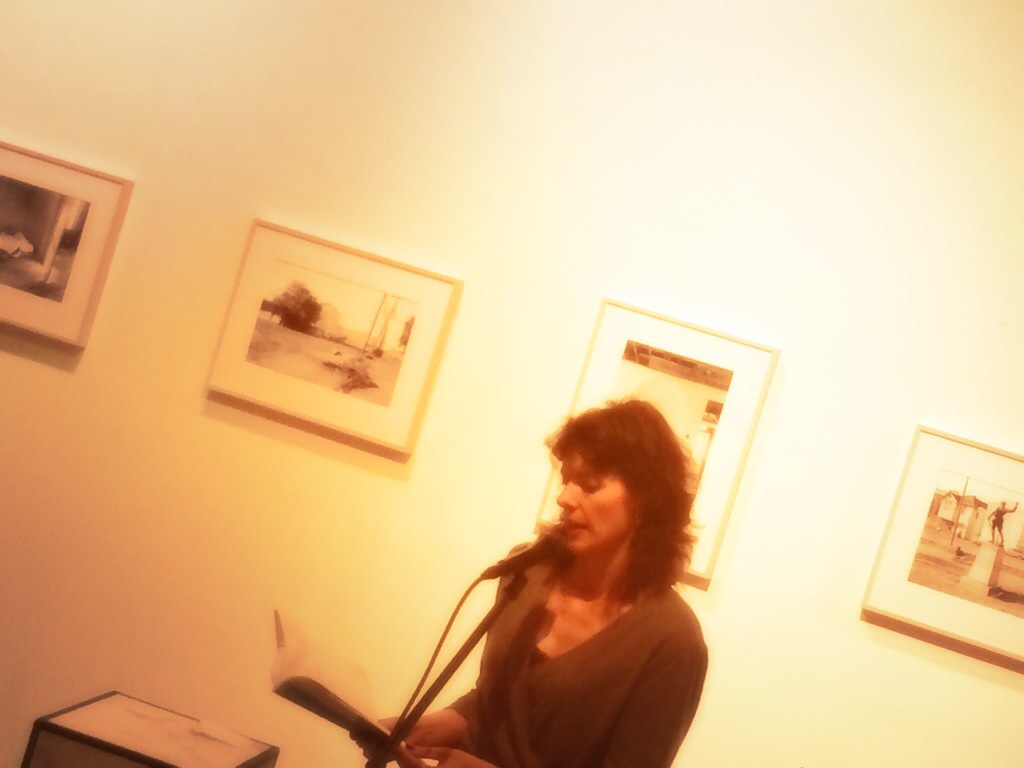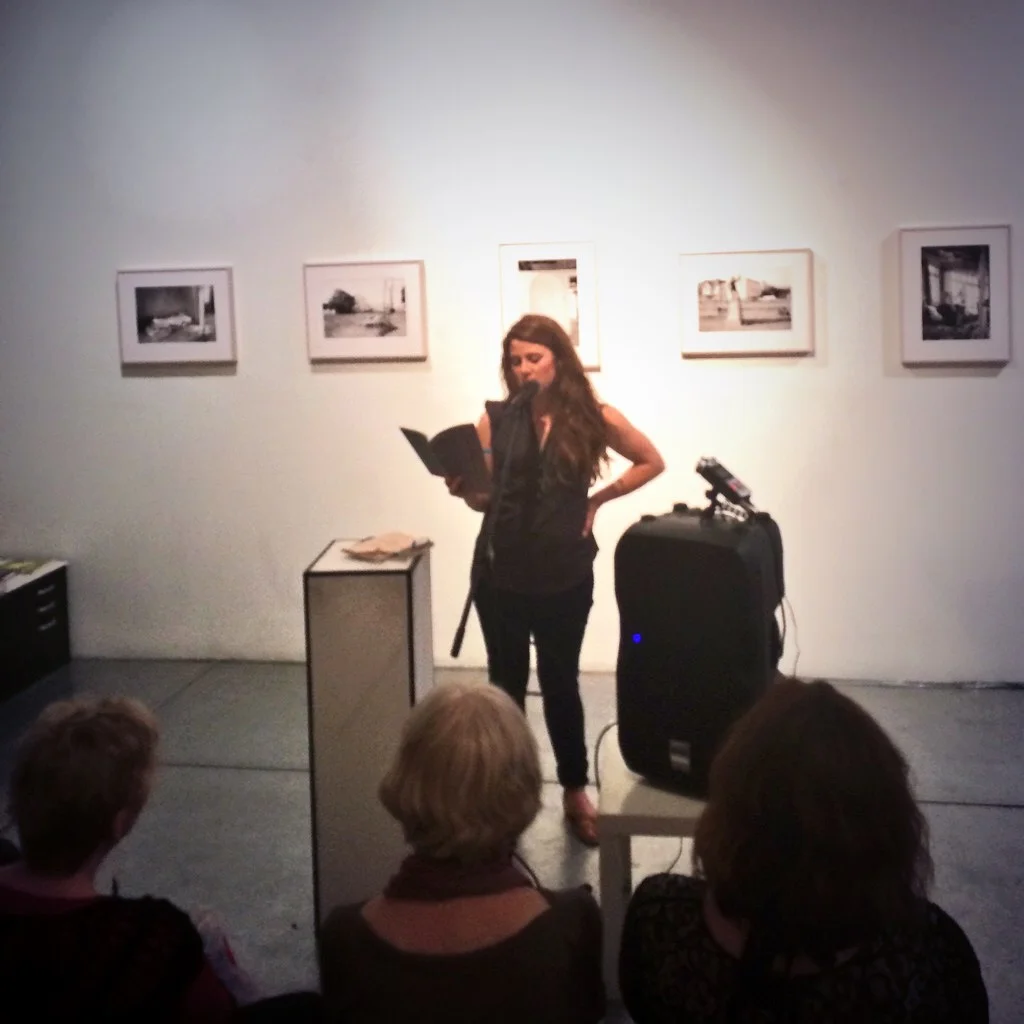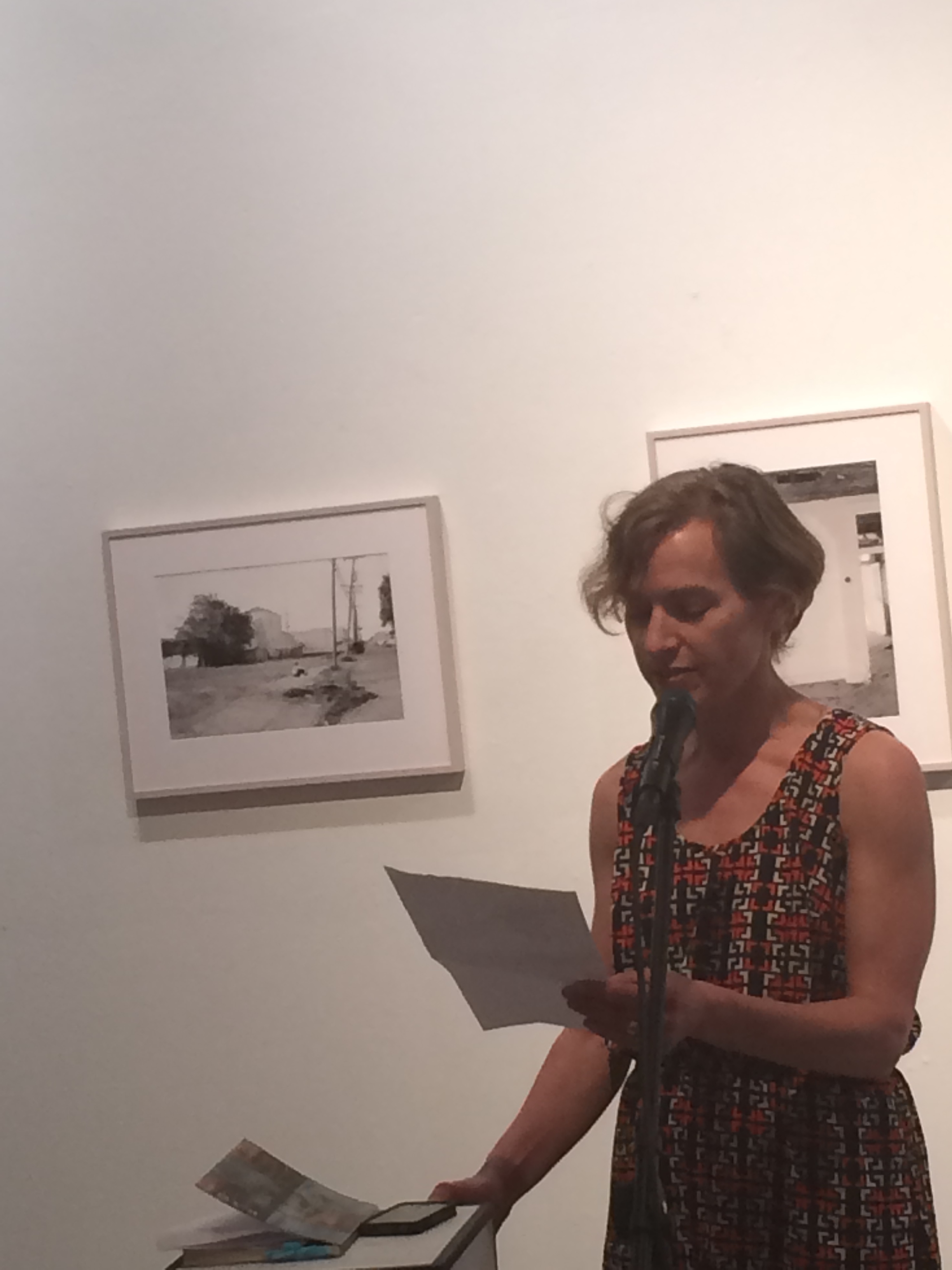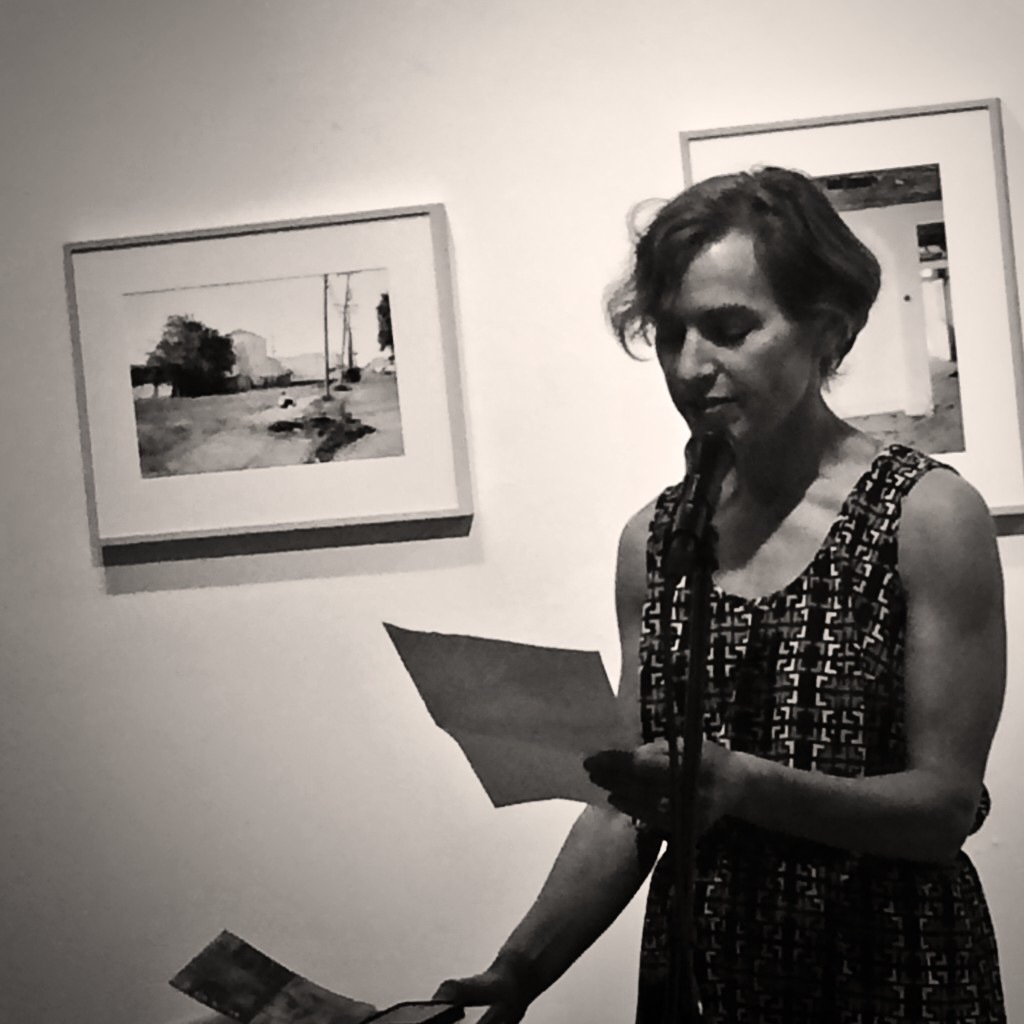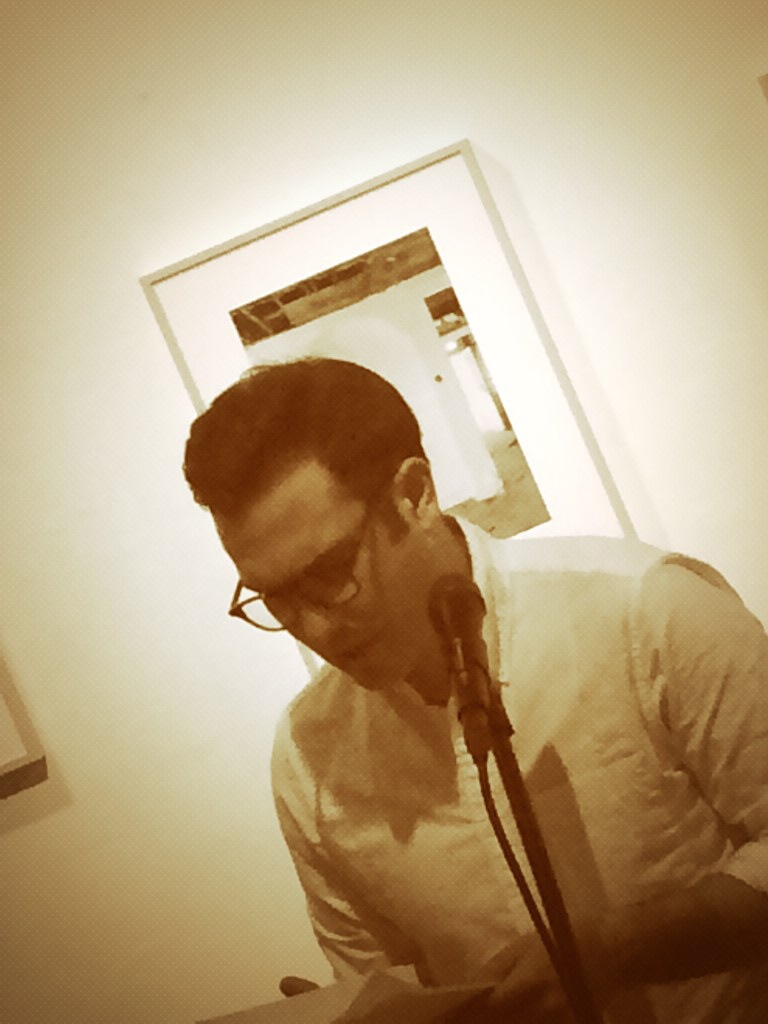Sasha Steensen, Julie Carr, Maureen Alsop & Graeme Bezanson
Introductory notes by Jared:
I thought I’d start with a poem that seemed relevant to the four poets tonight, here’s some Jack Spicer:
Look I am king of the forest, says the king of the forest as he growls magnificently.
Look, I am in pain. My right leg does not fit my left leg. I am king of the forest, says the king of the forest And the other beasts hear him and would rather they were king of the forest but that their right leg would fit their left leg. “beauty is so rare a thing,’ pound said,” “so few drink at my fountain.”
Poets tonight evokes animals and language, beauty and loss.
The voice in Maureen’s poem is a total Glenda good witch only more fun and cozier, like a Glenda who puts her fairytale feet up on the furniture: “I, the little lady of sublimations”
A former banana farmer on the Australia coast, Maureen now lives with a courtyard garden of impossible cacti in Palm Springs and fittingly her poetry also seems to emanate a magic ritual energy and be cluttered with resonant symbol images of prophesy or prayer but, like the best mystical poetry, without the sort of exclusionary energy of a specific spirituality or system of belief. It’s an intuition, an animal buzz innate in human experience “a blessing of ghost bees” “the landscape an inscription of ghost pigeons” In her work, there’s a homology between walking in nature and moving through language.
‘The center of the book is a catastrophe, but with love there is a lack of distance. You have led me into the first threshold of your vision. Jupiter glows through a ragweed thicket. There is no body.”
Maureen writes in one poem in Mantic “I am with deer” a great overlap with Sasha’s deers (her new book is called HOUSE OF DEER). Sasha is with deer too but I where Maureen’s poetry is velvety and pre-raphaelite, Sasha’s is like smashed marble, a full blown baroque that has been cut to the bone. (Maggie Nelson aptly suggests Neidecker as a poetic forebear.) “Skin of the book, skin of the deer,” writes Sasha, and I think they’re both playing this sense of something overworldly in these animals that come out of the woods very close to domestic spaces but with some kind of benign untameableness that is hunted like a poet hunting the poem. Deer are basically unicorns with implied horns.
“The utter of the milky way” appears in her first book – this sense of a poem implicit in the magic of reality as the enveloping environment we inhabit.
Sasha writes ‘ruralamerica’ as a single word – like a myth from the far future
the weird feeling of the present overlapping with an archeological future unburying of it.
Her new book suggests the image of a family tree divering in two directions – ancestry and descendents and how these two groups of related people who at not very many removes become strangers are kind of the same except in different times, so one’s children are like ‘ancestors-to-be’ This chiasmus is one that Steensen played with even in earlier books “find in our weeds a sufficient history and an ancient invisibility among our leaves” But that what lasts is kinship: “what doesn’t end with death but family”
Every family is a utopian commune
Turning from the cervine deer to the dear deer (it looked like there might be some common root in the dutch word for beloved) Steensen writes “dear is my little native vale’
Carr is writing on dearness I think, the cost of loving, with the poem as an archive of loss. There’s a philosophical energy in her work, but it’s one that is both held aloft and interrupted by the problem of using language to express it.
“it would be absurd to imagine the absent person in the margins of the book”
or in a harrowingly precise formulation at the edge of pure sound: “walled by fault, the taut self slipped”’
Carr has written a whole book on violence and in her most recent book we have
“This life without animals without rain”
“a heron with no face’
there’s a lot of this sense of unease and painful accommodation – she quotes holderlin “Night a stranger among humans” and writes “What else can words do? I’m no closer to her without them.”
Or in another poem
“a New? I’m ready to cannibalize my own past”
One more example:
“My fingernail is split. Been that way for years. Is this split a weapon and can I use it? For good”
a weapon for good is a useful way of thinking about Julie’s work as a poet.
I feel a great affinity from a distance for the work Carr’s done as a publisher of extremely exciting deep investigations (SELECTED DAYS, MOTHERs) and running her press Counterpath as a hybrid space that’s almost a bookstore a gallery a community space etc. A lot of the same impulses that animated us here at Berl’s.
“The body’s a hole through which other bodies move” writes Julie Carr.
and Graeme Bezanson has something similar
Once I wanted to enter you
like light fills a transparent box
Graeme Bezanson’s poems have this sense of this magic buzz that is dreamlike and dangerous - he writes “how replete the world must be with invisible birds” or in another poem,
“ That thrumming is the sound of children being airlifted a safe distance like drugged polar bears.”
Graeme has a lot of these sort of large lumbering mammals in his poems and they’re often close to language:
In an underground bunker they’re teaching the alphabet
To gorillas
and compares himself to "the gorilla in a melancholy haiku".
I see these as sort of writing back to Jack Spicer’s lion. But where there’s so much despair in the lion there’s a wonderful hopefulness in Graeme’s writing. He has a tumblr and the pictures frequently have these sunbursts like godlight. In honor of his project American eclogues i’d call it a sort of peculiar American openness but Graeme is canadian. Here’s one more quote:
the best thing about
still being here
must be how
all my miraculous
friends whatever
they do won’t stop
getting better
so on the note of friendship and the miraculous, I’m pleased to present...
